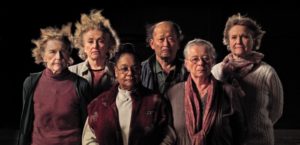What could go wrong when an eccentric anthropologist and 11 men and women from vastly different backgrounds board a shoddy raft with nothing but wind and currents to propel them across the Atlantic Ocean? For Santiago Genovés—the Spanish maestro of one of the most unusual social experiments ever conducted—hopefully, a lot.
Is war intrinsic human behaviour, or is love? It’s a lofty inquisition, one that The Raft director Marcus Lindeen coaxes slowly from the six remaining members of this experiment some forty-odd years later. A replica of the Acali (meaning house on the water) and fascinating archival footage allow us to take the journey back to the moments that bonded, and the trials that threatened to tear it all apart.
To some on the vessel, it was an escape; to others it was a rebirth. Fé Seymour, the only black female aboard, recalls a moment of “ocean vertigo” where she channels the pain and horror of those aboard slave ships upon the same journey. It’s a heartbreaking secret she’s kept and just one scene that makes The Rafta joy to watch.
“I’m fond of adventures, especially if they are dangerous,” one of Genovés’ notes from the experiment reads. His instigative nature proves to be the only real threat, as the crew appears to show no signs of the sexual-frustration-induced violence he was longing to witness. Rather, only his own aggression and violence is on display as the crew’s frustrations culminate in an un-acted upon plot to murder the leader.
The Raftis a tale of humanity only capable of happening in the outlandishness of 1970s experimentation. It’s a fascinating rumination on the nature of memory and interpretation, sexuality and race, and our ability to put differences aside and learn to love one another. The opposite is certain death.

